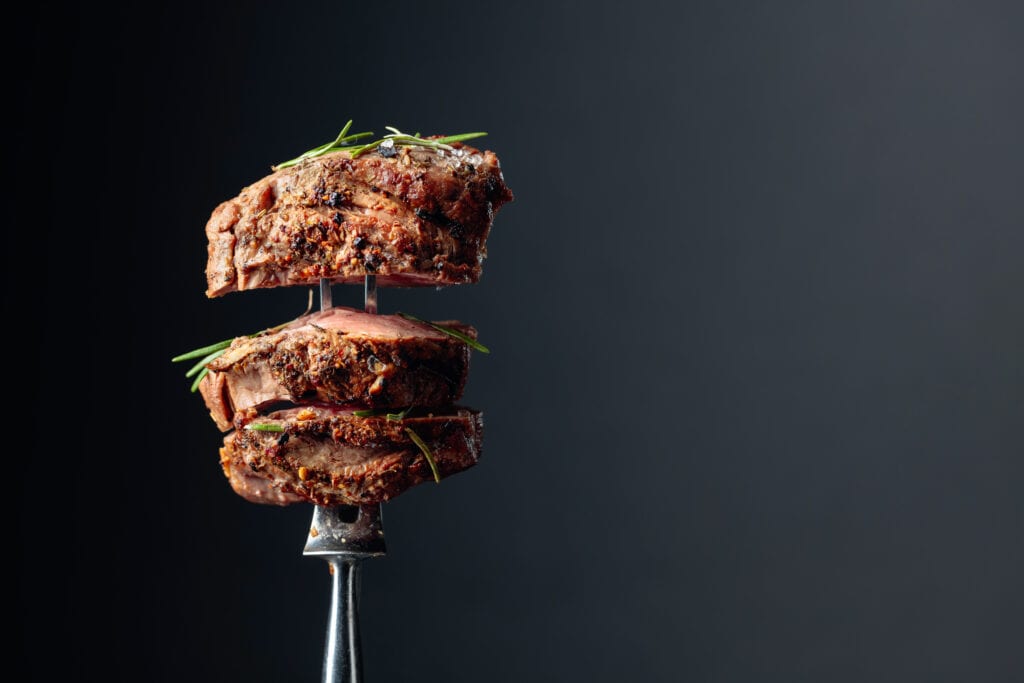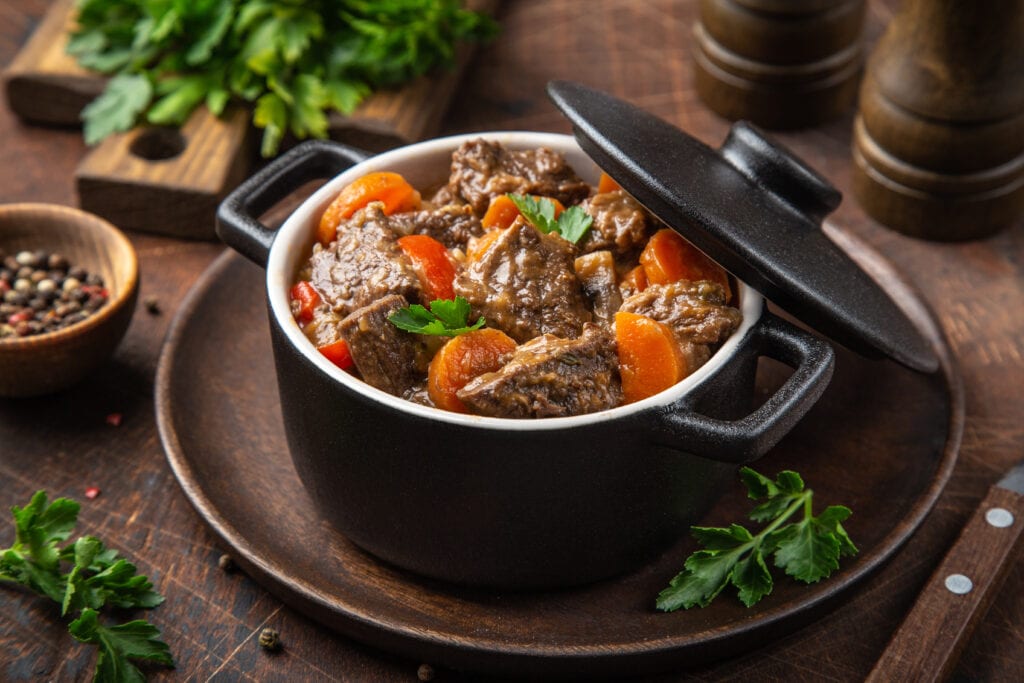
Beef: Nutrition, Benefits & Side Effects
From beef stew to steaks, we Pakistanis love to enjoy the meaty flavors all year round. Tender and soft, this particular red meat is a must-have delicacy at family dinners.
But, have you ever pondered upon Beef’s capability to supply you with the right nutrients? Is it even healthy to eat in the first place? Well, let’s evaluate the topic together!
You may also read: Is Red Meat Good For You?
Nutritional Value
The meat of all mammals comes under the category of red meat. And Beef refers to the meat of cattle, such as cows and calves. Therefore, Beef gets called a type of red meat.
We consume Beef in a lot of different ways, which includes stews, steaks, ribs, minced, or grounded Beef. It also gets processed into sausages and patties. A 100-grams portion of grounded Beef offers the following nutrients.

| Fats | Proteins | Carbs | Fiber | Water | Calories |
| 11.8 grams | 26.1 grams | 0 grams | 0 grams | 61% | 217 |
1. Fats
The fat amount present in Beef depends upon the animal’s gender, age, breed, and feed. Hence, the exact amount of fat in Beef can vary considerably. Usually, the processed Beef has a high-fat content, whereas the lean Beef has 5-10% of fats.
There are two types of fats in Beef, namely saturated and monounsaturated fats. Both of these are present in equal amounts. Beef also contains trans fat, such as CLA, that gets linked to weight loss.
2. Vitamins and Minerals
Being a form of red meat, the Beef is rich in a lot of vitamins and minerals. It includes vitamin B12 and B6, which are suitable for a healthy nervous system as well as metabolism. The mineral content contains phosphorous, zinc, selenium, niacin, iron, and much more.
3. Protein
Protein forms the main component of Beef. A portion of cooked Beef has about 26-27% of protein. The animal protein is of high-quality and has all the 9-essential amino acids.
4. Other Meat Compounds
Apart from the primary nutrients, the Beef has several anti-oxidants and bioactive substances. It includes Creatine that provides muscles with the required energy. Taurine and Glutathione are also present that are important for healthy cardiac function.

Top Health Benefits of Eating Beef
Firstly, Beef happens to be rich in a nutrient that helps to prevent anemia, namely iron. Thus, beef intake keeps a person from becoming anemic.
Anemia is a condition in which the person becomes weak and stays tired all the time. It brings about an utter lack of stamina. That’s because the reduced number of red blood cells allows the blood to carry limited oxygen, and thus, the body cells do not receive enough oxygen to perform at their best.
Some vegans counter the factor by giving examples of plant-based diets that are rich in iron. These people propose that Beef is not essential and can get conveniently avoided. They may be right, but only to an extent.
That’s because Beef provides the human body with heme iron, while plant-derived food can only provide non-heme iron. The human body efficiently absorbs heme iron. Hence, eradicating any possibilities of anemia. It also helps in the absorption of non-heme iron.
Consequently, beef intake also reduces fatigue. What’s more, the consumption of Beef protects one from Sarcopenia. It is a health issue associated with age-related muscle-wastage that usually occurs in older adults. It can only get reversed with increased protein intake and proper exercise.
Beef, as an excellent source of protein, helps prevent the development of Sarcopenia and also effectively builds muscle. Beef also provides us with beta-alanine, which contributes to the formation of Carnosine, which in turn improves muscle functioning—contributing yet again to reducing fatigue.

Side Effects of Eating Beef
Although there’s no ultimate proof, some studies suggest that saturated fat (present in red meat) can increase the risk of strokes, heart attack, and other heart diseases. That’s because it raises cholesterol levels in the blood. Thus, hindering the flow of blood.
However, some researchers, scientists, and medical experts suggest that these outcomes are only due to the behavior and routine of people and not because of red meat consumption.
Some research even suggests that overconsumption of red meat can lead to the development of cancers, especially colon cancer. Note that it only happens because of two reasons, i.e., overcooking and overconsumption. That’s because the substances produced when the meal gets overcooked are harmful, and the heme iron can prove to be dangerous for health if taken in excessive amounts.
Leave your comment
You must be logged in to post a comment.